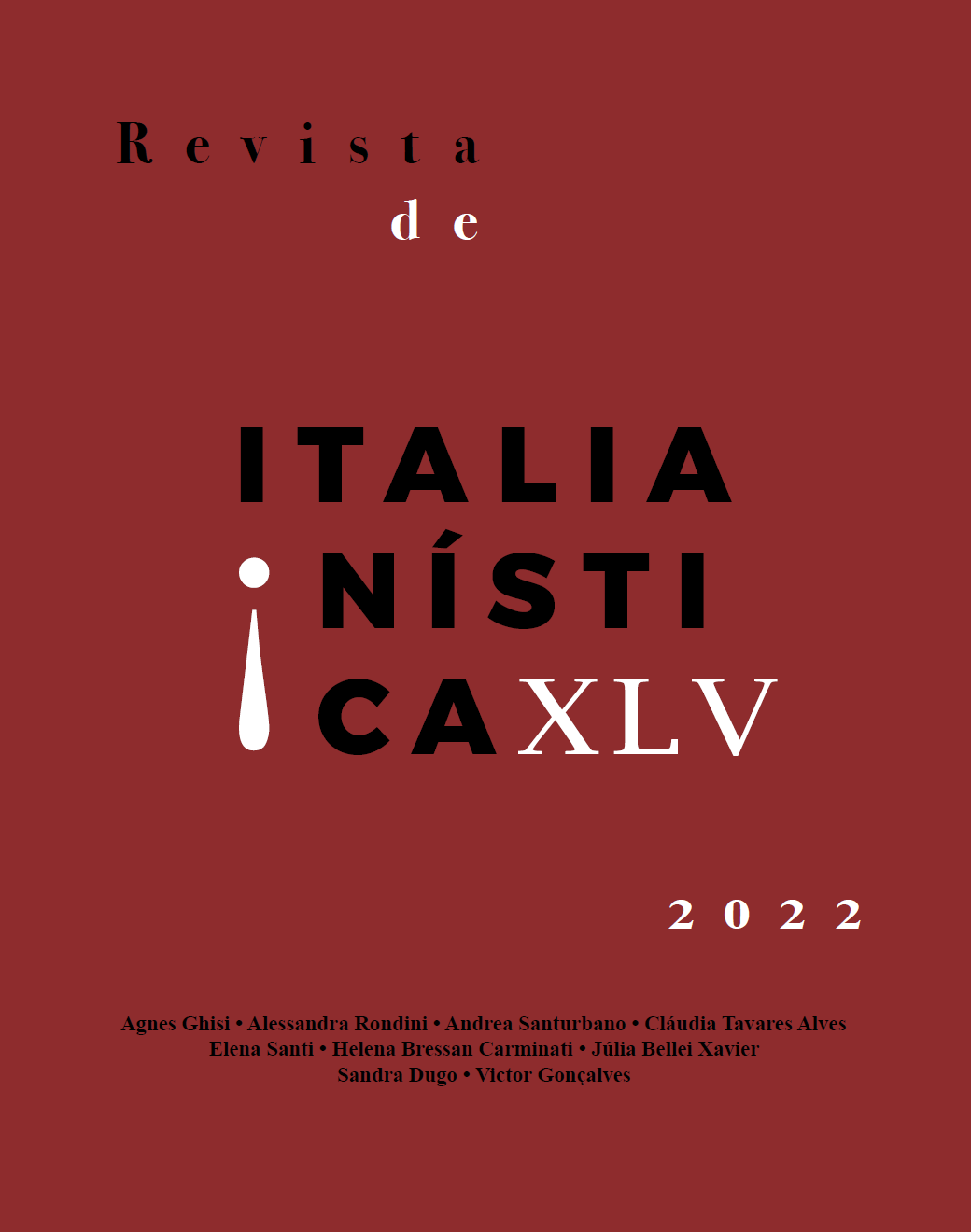“Eclipse of the Word”: Passages in “Canto of Ulysses” of Primo Levi
DOI:
https://doi.org/10.11606/issn.2238-8281.i45p24-36Keywords:
Italian literature, Translation, Primo Levi, “The canto of Ulysses”Abstract
“Today Primo is the one who goes with me to get the soup” (LEVI, 1988, p. 163). The phrase, apparently simple, symbolizes the invitation to an exchange that is barely possible. The concentrationary space, where language undergoes what, wisely, the Italian writer Primo Levi (1919-1987) defines as the “eclipse of the word”, at that moment opens itself, more specifically in the chapter “The canto of Ulysses” of If this is a man? (1947), for another possibility. The word that little by little is losing life finds in the dialogue between the two characters, Primo Levi and Pikolo, a re-encounter with their subjectivities but not only. It is thinking about this chapter, and above all, about the translation gesture as an act of love, that this essay is inscribed. In this sense, as an encounter, the translation will be part of movements that do not necessarily need to be binary, that is, a split between an inside and an outside, between the self and the other. In fact, in Translation as culture, Gayatri Spivak refers to translation as not only an act of intimate reading but also an act of love, surrender, and solidarity. It is by listening to Pikolo that the translating act of Levi who recites the verses of the Divine Comedy is made possible. And if “No speech is a speech until it is heard” (SPIVAK, 2015, p. 58), it is intended to reflect how translation takes place in “The canto of Ulysses” and what paths it makes possible within an environment as bordered as the Camp.
Downloads
References
AGAMBEN, G. O fogo e o relato: ensaios sobre criação, escrita, arte e livros. Trads. A. Santurbano e P. Peterle. São Paulo: Boitempo, 2018.
ARTUSO, A. R. Ulisses no inferno da Divina Comédia – uma comparação do herói em Dante, Homero e Virgílio. Cadernos de Letras da UFF, Dossiê: A crise da leitura e a formação do leitor, Rio de Janeiro, v. 26, nº 52, p. 461- 492, 2016. Disponível em: https://bit.ly/3ul8Me8. Acesso em: 20 set. 2020.
BARBOSA, M. V. Sujeito, linguagem e emoção a partir do diálogo entre e com Bakhtin e Vigotski. In: SMOLKA, Ana Luiza Bustamante; NOGUEIRA, HORTA, A. L. (org.). Emoção, memória, imaginação: a constituição do desenvolvimento humano na história e na cultura. Campinas, SP: Mercado de Letras, 2011. p. 11- 33.
BRITO, E. F. de. Diferentes sedes – Convivio e Commedia em análise. Serafino – Cadernos de pós-graduação em língua, literatura e cultura italianas, São Paulo, n. 4, 2011, p. 91-97. Disponível em: https://bit.ly/2SyTw08. Acesso em: 20 set. 2020.
DANTE, A. A Divina Comédia. Trad., notas e intro. V. G. Moura. Lisboa: Quetzal, 2015.
HOMERO. Odisseia. C. A. Nunes. Rio de Janeiro: Nova Fronteira, 2015.
LEVI, P. É isto um homem? Trad. L. del Re. Rio de Janeiro: Rocco, 1988.
LEVI, P. Il veleno di Auschwitz: il volto e la voce: testimonianze in TV 1963-1986. SESSI, F. e GAWRONSKI, S. (a cura di). Venezia: Marsilio Editori, 2016.
LEVI, P. Opere complete III: conversazioni, interviste, dichiarazioni. BELPOLITI, M. (Org). Torino: Einaudi, 2018.
MAURO, C. F. C. Ulisses em Auschwitz: a releitura de um mito. Anais do SILEL, Uberlândia, v. 2, n. 2, p. 1-8, 2011. Disponível em: https://bit.ly/3hWxmiR. Acesso em: 20 jun. 2020.
SPIVAK, G. C. Tradução como cultura. Trads. E. Ávila e L. Schneider. Ilha do desterro, Florianópolis, n. 48, p. 41-64, jan./jun. 2015. Disponível em: https://bit.ly/3wIhtkt. Acesso em: 20 nov. 2020.
THOMSON, I. Primo Levi una vita. Trad. E. Gallitelli. Torino: ETET, 2017.
WEINRICH, H. Lete: arte e crítica do esquecimento. Trad. L. Luft. Rio de Janeiro: Civilização Brasileira, 2001.
Downloads
Published
Issue
Section
License
Copyright (c) 2022 Revista de Italianística

This work is licensed under a Creative Commons Attribution-NonCommercial-NoDerivatives 4.0 International License.
A revista retém os direitos patrimoniais dos artigos e os publica simultâneamente sob uma Licença Creative Commons-Atribuição-Não Comercial-Sem Derivações.



